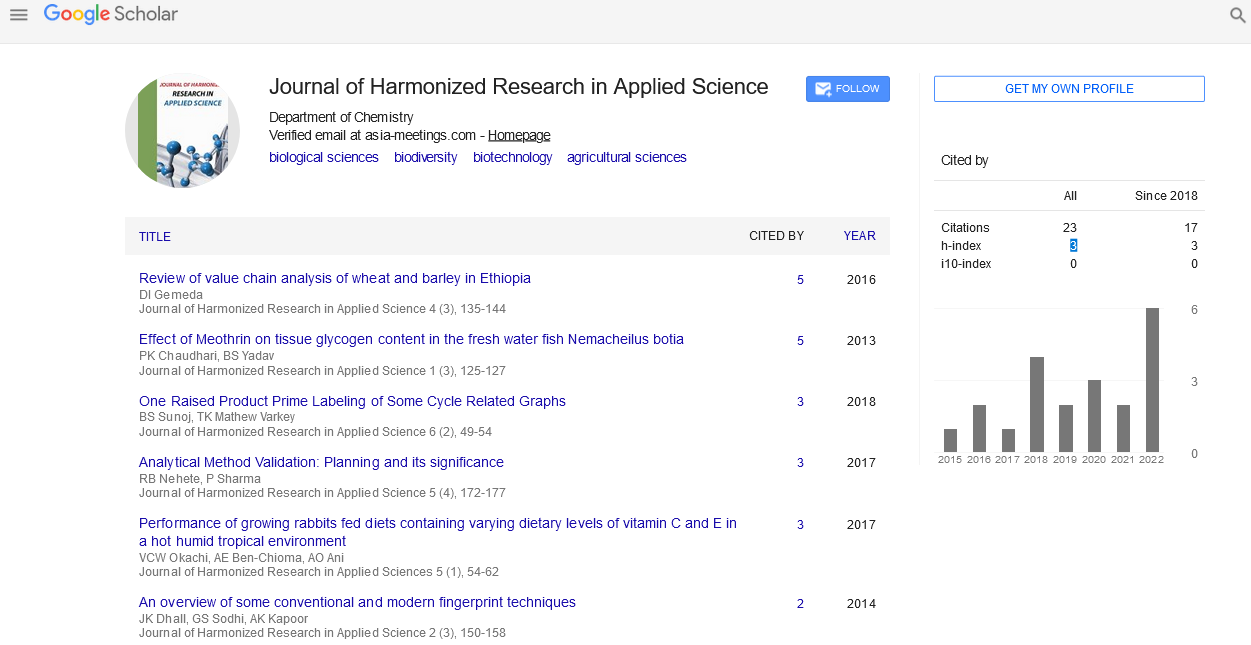Perspective - (2022) Volume 10, Issue 1
PHARMACOGENOMICS OF ANTI-CANCER DRUGS
Sushmita Agarwal*Received: Feb 16, 2022, Manuscript No. JHRAS-22-61401; Editor assigned: Feb 22, 2022, Pre QC No. JHRAS-22-61401(PQ); Reviewed: Mar 08, 2022, QC No. JHRAS-22-61401; Revised: Mar 15, 2022, Manuscript No. JHRAS-22-61401(R); Published: Mar 31, 2022, DOI: 10.30876/2321-7456.22.10.04
Description
Pharmacogenomics is an exciting and powerful emerging area that promises to improve healthcare outcomes like never before. Pharmacogenomics is a study of genetic factors that affect drug response and toxicity. It focuses on mutations in the human genome. Somatic mutations are associated with molecular markers found in tumor tissue, but pharmacological genomics is studying genetic markers with predictable consequences for pharmacological treatment. Pharmacogenomics provides actionable data to prevent side effects, provide beneficial treatments faster, and reduce medical costs. The basic aspects of pharmacological genomics can be traced back to 510 BC and the observation of Pythagoras who discovered that some people became ill after eating broad beans. Broad bean intolerance was found to be due to glucose-6-phosphate dehydrogenase (G6PD) deficiency 1 caused by a deleterious variant of the enzyme-encoding gene. Coincidentally, glucose-6-phosphate dehydrogenase deficiency is now known to be important in oncology because it is associated with an increased risk of haemolysis in patients receiving rasburicase to prevent tumor lysis syndrome. Many of these gene-drug interactions are the result of genome-wide association studies with the genes that focus primarily on shared genetic variation (allele frequency >1%). Examples of clinical utility include genotyping or phenotyping of glucose-6-phosphate dehydrogenase to prevent rasburicase- induced RBC haemolysis, and Thiopurine S-methyltransferase to prevent thiopurine-induced myelosuppression. Other relevance, the Cytochrome P450 Family 2 Subfamily D Member 6 status in determining the efficacy of B- tamoxifen, is more controversial due to conflicting evidence from various sources. As genomic technology becomes cheaper and more accessible, we need to look at additional data that the genome can provide to explain the differences in interpersonal relationships depending on the cancer treatment. Obviously, genes do not act alone, so it is important to study genetic factors in combination with other factors such as clinical factors, interacting medications and micro flora. All of this can affect the type of drug. Considering all these factors in conjunction with the somatic genome can improve predictive accuracy in determining both antidrug response and efficacy and safety. This review summarizes existing knowledge related to drug gene mixing of anticancer drugs and discusses areas of opportunities for further progress in treatment personalization. To improve both safety and efficacy of medicines. The application of pharmacogenetics in oncology is very important due to the narrow therapeutic index of chemotherapeutic agents and the risk of life- threatening side effects. Many cancer genomic studies focus on acquired somatic mutations. However, there is increasing evidence that genetic variation in hereditary germline plays an important role in cancer risk and successful treatment.
The role of pharmacological genomics in oncology, focusing solely on germ line mutations. Gene polymorphisms are found in the gene, which encodes the metabolic enzymes and cellular targets of most chemotherapeutic drugs. However, it is still impossible to predict the outcome of most regimen treatments. The most commonly studied drug gene pairs are current knowledge and current limitations. However, further research is needed involving more cancer patients is needed to perform accurate validation of pharmacogenetics biomarkers before these markers are routinely used in clinical diagnosis and treatment. Treatment in oncology has made great strides in the last decade due to the recent revolution in medical interventions. Narrow therapeutic indexes, fluctuating overall response rates and clinical outcomes, and chemotherapy-induced toxicity are examples of the problems that result from cancer treatment. Many patients have similar clinical symptoms, but their response to the same treatment is very different. Some treatment regimens do not seem to work in cancer patients. On the other hand, the side effects of the drug or may increase the likelihood of overtreatment. Optimizing treatment plans for individual patients may lead to better clinical outcomes. Recent advances in medical genetics and proteomics have increased knowledge of individual differences in pharmacokinetics and pharmacodynamics based on genetic composition.










